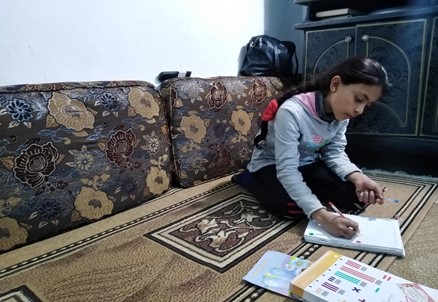”I THOUGHT I WOULD LOSE OUT ON LEARNING”
The numbers are unprecedented, the implications enormous. Never have so many children – more than 1 billion – been out of school at the same time, disrupting learning and upending lives, especially the most vulnerable and marginalised. To keep the world’s children learning, countries have been implementing remote education programmes. Yet many of the world’s children – particularly those in poorer households – do not have internet access, personal computers, TVs or even radio at home, amplifying the effects of existing learning inequalities.
UNICEF is working with partners to keep schools safe and students learning, in classrooms or at home, online and offline – wherever they are.
Even before COVID-19, millions of children in Syria were out of school or at risk of dropping out as the country entered its tenth year of conflict. The suspension of classes in spring as a precautionary measure, created further uncertainty for millions more children.
“I was shocked when I heard that [school] would be suspended. I thought I would lose out on learning again,” says 12-year-old Maram from her home in Ar-Raqqa.
Maram is using the Self-Learning Programme books she received to help keep her education on track. The UNICEF-supported Self Learning Program is designed to help children who dropped out of school or are in risk of dropping out.
“My mother offered to teach me at home using the self-learning books. Together we put a weekly study programme for all core subjects, such as Arabic, English, math and science and we have followed it since I stopped going to school
”, Maram tells.

